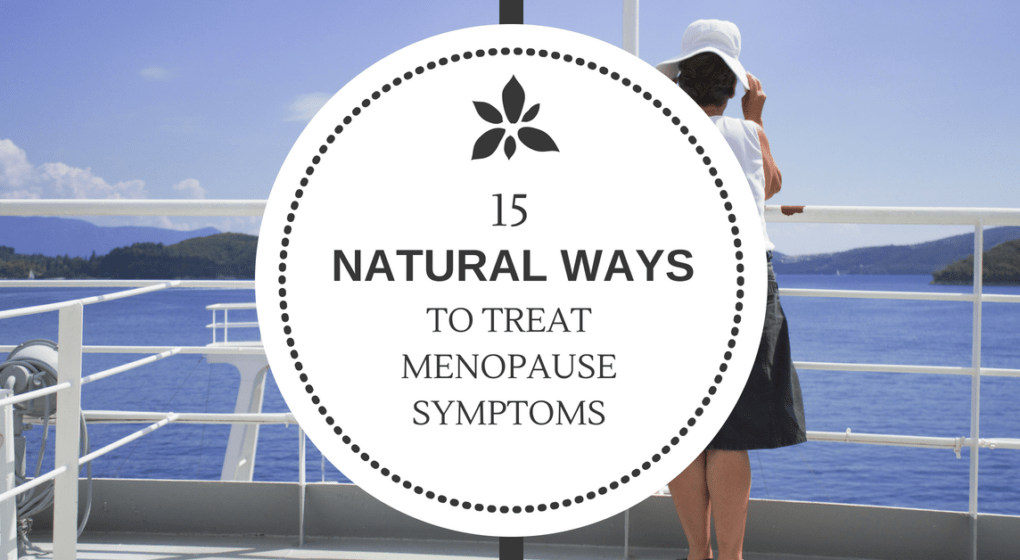
Although many women dread getting a monthly period, the symptoms of menopause - when a woman’s period stops for 12 months consecutively - or perimenopause - when a woman’s period intermittently stops before menopause starts - can be just as unbearable. Hot flashes, night sweats, mood swings, and vaginal dryness are just some of the unpleasant symptoms a woman may experience during menopause.
There are various menopause treatment options, including Hormone Replacement Therapy, but there are plenty of natural remedies for menopause, too. If you’re going through menopause and prefer home remedies, consider giving these natural alternatives a try.
1. Use LadyCare Plus+
LadyCare is a safe and natural way to treat menopause and perimenopause symptoms. A drug-free alternative to help with menopause symptoms, the LadyCare is a small device that clips onto your underwear. During menopause, less progesterone and estrogen hormones are produced, which can cause the Autonomic Nervous System (ANS) to become unbalanced.
And when the ANS is unbalanced, you can experience stress reactions that can alter your sweating, body temperature, heart rate, bladder and bowel functions, and more. The LadyCare can alleviate symptoms by helping to balance the autonomic nervous system. See our full review here.
2. Take Black Cohosh
Black Cohosh is used as a natural remedy for hot flashes. A plant native to North America, black cohosh has been shown to dramatically help reduce the number and severity of hot flashes a woman has if taken regularly. It’s also showing promising results in helping women who are recovering from breast cancer live longer, but more research is needed on this use of black cohosh
3. Eat More Foods with Soy
Soy products like tofu and soy milk contain isoflavones, plant-based compounds that resemble estrogen. Eating soy products can cause components of isoflavones to bind to estrogen receptors in the body which then act like a weak form of estrogen. This can reduce or alleviate menopause symptoms
4. Add Flaxseed to your Diet
Studies have shown that a higher intake of omega 3 fatty acids can lessen menopause symptoms. Flaxseeds are a great vegan friendly source of omega-3 fatty acids and are high in lignans, a natural phytoestrogen that replicates female estrogen in the body. Since hormone levels determine the severity of symptoms, flaxseed can help to balance hormone levels.
5. Take Vitamin E
Vitamin E is an antioxidant known for reducing inflammation in the body and fighting cell-damaging free radicals. Cell damage increases a person’s risk of depression, heart disease, and weight gain - which are symptoms of menopause. Taking Vitamin E or eating Vitamin E rich foods like almonds, avocado, broccoli, squash, and sunflower seeds can help ease stress and reduce your risk of depression
6. Exercise for Stress Relief and Fitness
Although exercise doesn’t directly provide menopause relief, it can help you maintain a healthy weight and reduce stress during menopause. Practicing yoga can be a great way to deal with the stressors in your life, but if you prefer to really work up a sweat, consider aerobic activities like walking, running, or cycling.
7. Practice Relaxation Exercises

Managing your stress levels is important if you want to minimize your menopause symptoms. Learning how to relax can help you de-stress, and practicing breathing techniques or meditating is a great way to quiet your mind. If you want to find relief for hot flashes, these breathing techniques can help you almost immediately feel better.
8. Use Primrose Oil
Primrose oil, or evening primrose oil is an essential fatty acid used to treat everything from eczema to alcoholism. It’s most known for treating issues related to inflammation. For women suffering from menopausal symptoms, primrose oil can be used to help with breast tenderness and hot flashes.
9. Try Natural Progesterone Cream
After menopause, a woman’s progesterone level is normally completely depleted. Progesterone is a natural steroid hormone that serves many purposes, including boosting metabolism, balancing blood sugar levels, and improving libido. Using a natural progesterone cream can reduce menopausal symptoms and it can also help bone density. Progesterone can be easily absorbed into the bloodstream through the skin.
10. Take Vitex or Chasteberry
Vitex, also known as chasteberry, is a shrub native to the Mediterranean and Central Asia. Its purple berries are used to create supplements to treat conditions like acne, headaches, nervousness, and it can decrease libido. Its nickname, “chasteberry,” comes from folklore that says that monks used this berry to remain celibate. Vitex can help menopausal women find relief from hot flashes and improve sleep quality.
11. Use Ginseng
Ginseng is an herbal remedy for menopause. Although it’s known for boosting memory and concentration, ginseng can also combat menopause symptoms like hot flashes, mood swings, and fatigue.
12. Try Red Clover
Red clover is a natural supplement shown to help improve hair and skin and can reduce the signs of aging. In menopausal women, red clover can help to combat symptoms caused by estrogen loss like low libido, mood swings, and insomnia.
13. Check out St. John’s Wort
St. John’s Wort is known for its anti-inflammatory properties and has become a popular supplement used to naturally treat depression. For women experiencing symptoms of menopause, St. John’s Wort has been shown to boost mood and libido.
14. Take Maca Root
Maca has hormone-normalizing effects and is rich with nutrients used by the endocrine system. The endocrine system regulates metabolism, energy levels, mood, and other systems impacted by menopause. Maca can help menopausal women treat symptoms like hot flashes, mood disorders, and sexual dysfunction.
15. Use Sage Oil
Sage oil is an essential oil known for balancing hormones. It can help alleviate menopause symptoms like anxiety and hot flashes. It can be used as a natural alternative to antidepressants.
These natural remedies for menopause offer a lot of great alternatives to hormone replacement therapy and hopefully you can find home remedies to help lessen your symptoms and make, “the change of life,” more bearable.
Bonus Recommendation: Prevent or Treat Osteoporosis
Depending on individual needs, it may be necessary to take medication to prevent or treat osteoporosis. As hormone levels diminish during menopause, bone loss may occur and contribute to weak and brittle bones.
The rate of bone loss can be reduced with the use of drugs. Adequate levels of calcium and vitamin D and physical activity are essential to achieve optimal bone density.
The modification of the risk factors includes maintaining an adequate weight, increasing aerobic exercises and standing, minimizing the consumption of caffeine and alcohol and avoiding smoking.
An intake of 1,200 to 1,500 mg/day of calcium (including consumption in the diet) is recommended for postmenopausal women. Vitamin D supplements are recommended with 800 to 1000 IU / day. People with vitamin D deficiency may require even higher doses. As an emphasis on nutrient needs is heightened during menopause, it's important to ensure you're getting enough of the right nutrients (source).



![NatureWise Flaxseed Oil 1200mg Softgels with 720mg ALA, Omega 3 6 9, Supplement for Heart Health - Made with Organic, Cold Pressed Flaxseed Oil, Fish Free Omega, Non-GMO - 120 Softgels[2-Month Supply]](https://m.media-amazon.com/images/I/41AnU3h0laL._SL160_.jpg)








